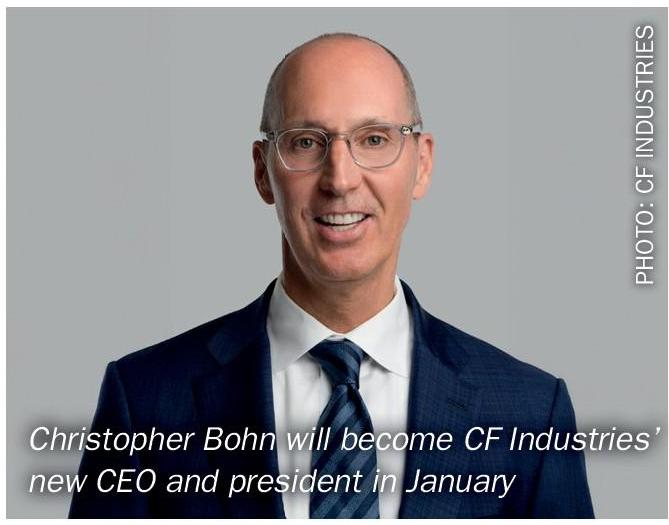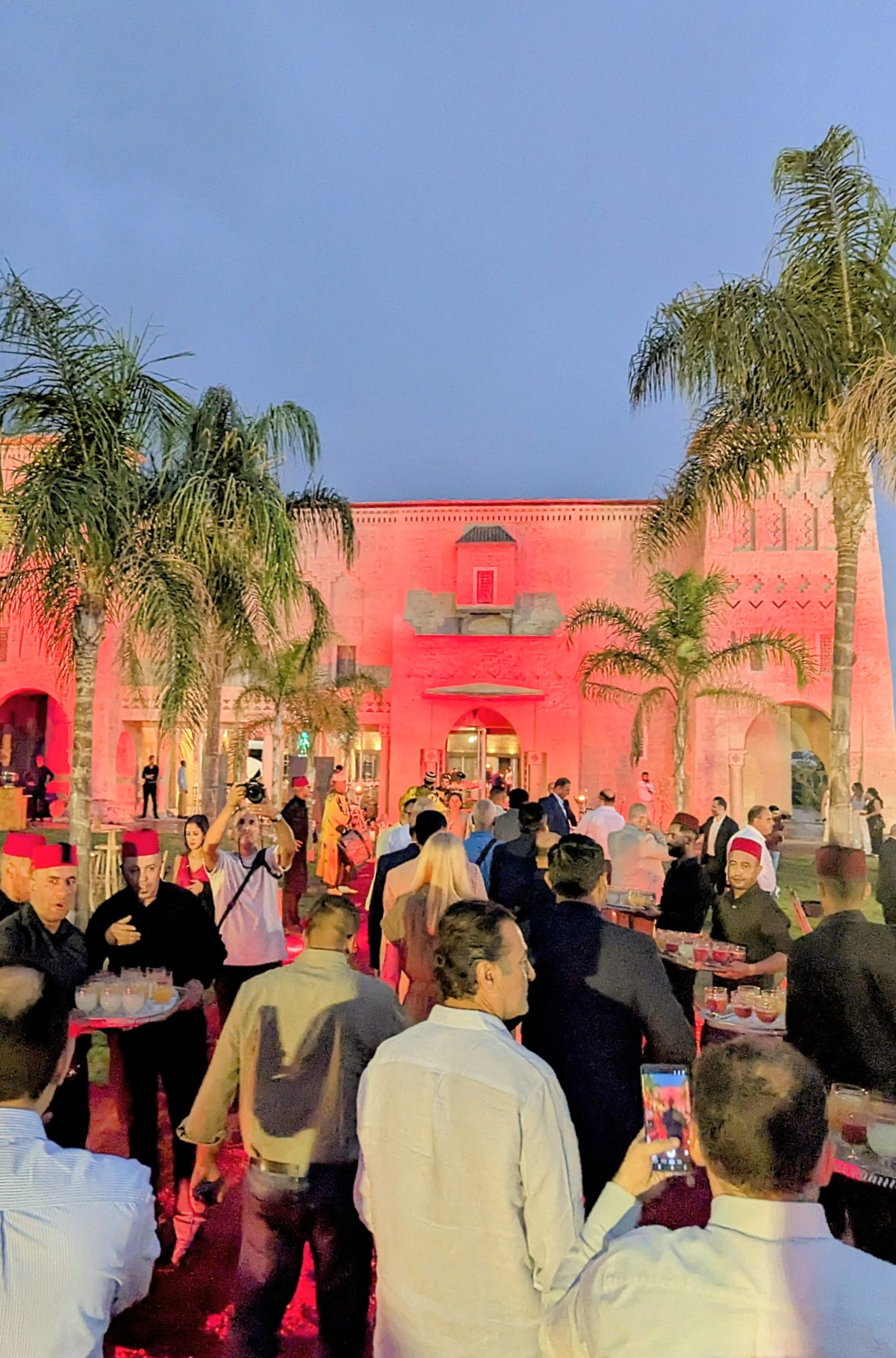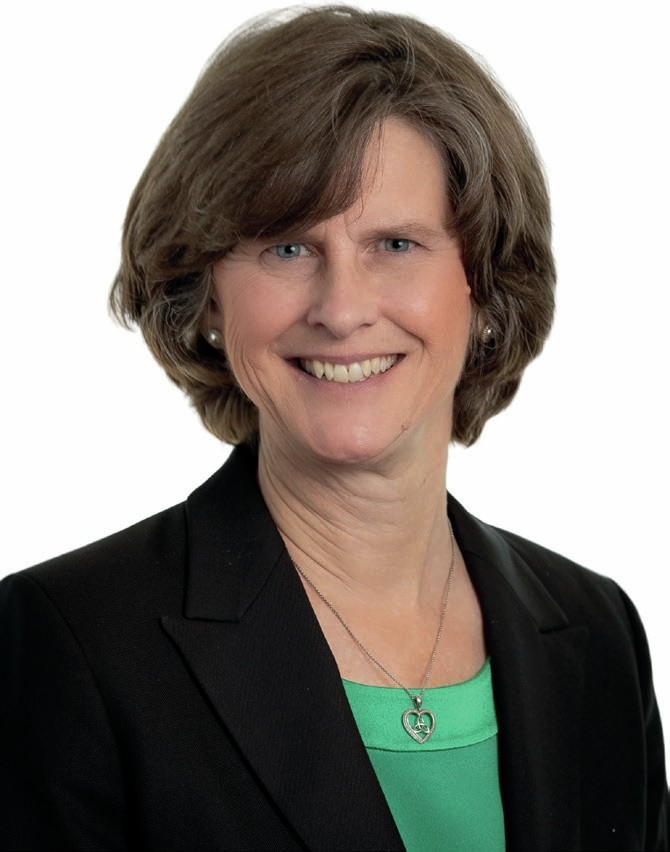Fertilizer International 511 Nov-Dec 2022

30 November 2022
Happy 70th Birthday ERCOSPLAN!
CONFERENCE REPORT
Happy 70th Birthday ERCOSPLAN!
The ERCOSPLAN Group of Companies held an international potash symposium on 6-8 October 2022 at the Messe Erfurt Congress Centre in Erfurt, the capital of the German state of Thuringia. The overall theme of this year’s event was: the exploration, extraction and processing of mineral salts – as well as the creation and use of underground cavities in the saline host rock.

ERCOSPLAN’s renowned potash mining and technology events, being held every five years, have become an industry tradition. This year’s symposium marked two celebrations – ERCOSPLAN’s 70th anniversary as an Erfurt-based business and its 30th anniversary as a worldwide potash engineering company.
Sustainable and socially responsible
This year’s event provided a platform for promoting economically and ecologically sustainable potash fertilizer production. It also explored how underground cavities in saline host rocks at potash mines could be created and used for purposes such as backfilling, hazardous waste storage and as potential radioactive waste repositories.
The symposium generated an enthusiastic national and international response. Participants agreed about the importance of having a practical, sustainable and socially responsible potash mining industry globally – one that strikes the right balance between economics and ecology.
More than 250 delegates from 21 countries and six continents attended this year’s event in Erfurt. These included engineering professionals and high-level delegates from the mining and fertilizer industry, environmental authorities, as well as private and institutional investors.
There was regret that so few Russian and Belarusian potash industry delegates were able to attend this year. However, the reasons for this are even more regrettable – the war in the Ukraine and the inevitable sanctions against both countries.
Much more positively, the symposium was again held with the full support and endorsement of Bodo Ramelow, Thuringia’s prime minister. The promotion of the potash industry in his state and throughout Germany – and the safeguarding of jobs – remain matters close to his heart. This was something he reiterated in his plenary message to delegates (see photo above).
A full conference programme
The symposium included:
- A packed programme of 35 presentations in three plenary and six parallel sessions
- An exhibition with more than 30 posters
- Two full-day excursions to the Werra and the South Harz potash districts.
- Presentations covered diverse topics such as geological deposits, mining and processing technology, environmental protection during potash production, and the decommissioning of mines and the restoration of natural habitats.
First plenary session
This session was devoted to potash mining in Thuringia and Germany. Martin Ebeling (pictured), manager of the Werra potash plant operated by K+S Minerals and Agriculture GmbH, opened the session. This plant is responsible for more than 40 percent of the final products manufactured by K+S Group.


Martin outlined the future of Werra’s production all the way through to the year 2060, when – from today’s perspective – its potash deposits will be exhausted. Numerous technical challenges will have to be mastered in the coming decades, in his view. The secondary mining of the most valuable parts of the deposit, for example, has already begun and will need to be continued. The use of fossil fuels in potash fertilizer production will also need to phased out by 2045. This transition which will require further reductions in energy consumption, expansion in the use of renewables, waste heat utilisation and the adoption of green hydrogen. Looking ahead, water protection, land use and – for at least the next two decades – fossil fuel use will all contribute significantly to the future costs of the Werra Plant.
DEUSA International GmbH operates a potash solution mine and processing plant in Bleicherode, Thuringia. This extracts and processes carnallitite via hot leaching. CEO Peter Davids reported on the company’s progress in becoming a climate neutral and sustainable mining operation. Nevertheless, the solution mining of carnallitite and the use of thermal processes to recover technical brines still poses challenges, he explained, due to current high gas prices.
Positive potash exploration results obtained by South Harz Potash Limited in 2022 were presented by Ian Farmer, the company’s acting executive chairman. He went on to explain the prospects for the resumption of potash production in the South Harz potash district of northern Thuringia.
Second plenary session
The second plenary session investigated the global availability of raw materials in the new geopolitical environment brought about by the Russia-Ukraine conflict. This highlighted the need for a renaissance in the production and supply of raw materials within Europe, and also examined the existing legal hurdles in both the European Union and in Germany that are preventing this currently.
There is an indispensable need for a secure and sustainable supply of mineral raw materials and energy, said Volker Steinbach, vice president of the Bundesanstalt für Geowissenschaften und Rohstoffe im GEOZENTRUM HANNOVER. In the current market situation, this was vital for securing the future of Germany as a business location, explained Volker, as high (as well as volatile) raw material prices and supply bottlenecks are currently a burden on German companies. In the future, restoring German and European value chains will be necessary to successfully transform the market, he suggested, a process that has already begun. This transformation will require the strengthening of domestic mining and metallurgy sites, the diversification of raw materials supply, and participation in international mining projects. This will be the only way to ensure that sustainable extraction, processing and ultimately recycling of raw materials are possible, Volker concluded.
The presentation by Lutz Katschmann, head of the geology and mining department at the Thüringer Landesamtes für Umwelt, Bergbau und Naturschutz, explained the complexities of current and future raw material extraction in Thuringia.
Fritz von Hammerstein, partner and lawyer at CMS Hasche Sigle, spoke about current mining laws and planning procedures. He then presented proposals for accelerating the approvals process. These should be highly pragmatic and reduce the documentation required by the regulatory authorities. Any workable remedies, suggested Fritz, would also need to apply to both European and national legislation.
Six parallel sessions
The six parallel sessions covered current potash projects and innovative potash methods, processes and systems. The sessions covered:
- Conventional and solution mining, the processing of potash ores and product beneficiation
- Underground storage of industrial and hazardous waste and potential nuclear waste repositories, as well as special mining projects in saline host rocks
- The closure and safeguarding of potash and rock salt mines and the restoration of natural habitats at former production sites
- Environmental protection and sustainability in potash fertilizer production
These discussions were organised to reflect ERCOSPLAN’s main business activities. From a fertilizer industry point of view, the following highlights are of interest:
Jochen Greinacher, the CEO of Redpath Deilmann GmbH, presented new information on innovations in mechanical and conventional shaft sinking, He illustrated this using the example of the shaft sinking for the greenfield Slavkali project which was completed last year in Nezhinsk in Belarus. The construction of two eight metre wide and 700 and 750 metre deep shafts was completed in just 29 months from the start of site set-up. Following the very successful use of shaft boring roadheader (SBR) machines in this project, Redpath Deilmann and Herrenknecht AG decided to develop a similar SBR for harder rock formations with strengths between 100-250 MPa. The prototype will be available in 2023.

Matt Simpson, the CEO of Brazil Potash Corp, provided an update on the company’s Autazes potash project located in Brazil’s Amazon region. This greenfield project combines strong competitive advantages with high sustainability objectives. Matt highlighted the importance of domestic Brazil potash for overall global food security, given the world’s reliance on Brazil as a production powerhouse for agricultural commodities and foodstuffs.
The presentation by Achim Strauss and Stéphane Rigny, the CEO and executive chairman, respectively, of Kanga Potash, covered the latest developments at the Kanga carnallite solution mining project in the Republic of Congo. They emphasised the importance of site selection for determining project economics.
Jens Hanisch, a consultant at FAM/ BEUMER Group, and Kai Ulrich, the technical manager of the Moscow office of FAM-AKO Anlagenexport GmbH, shared their experience of using wet hammer mills for crushing crude salt. They reported on the potential efficiency improvements delivered by this new mechanical development.
Case studies on the optimisation of evaporation and crystallisation plants were presented by Sebastian Ebner, project engineer at Ebner GmbH & Co KG. These were illustrated by recently implemented projects and those currently planned by the company.
Fabian Horbert introduced delegates to Köppern’s GranuGrinder machine. Fabian, the head of the engineering department at Köppern Aufbereitungstechnik GmbH & Co KG, highlighted how improving the design of established grinding technology can help conquer new applications.
Suitable processing methods for the poly-mineral potash deposits found in Ukraine’s sub-Carpathian region were described by Ivan Kostiv, a mineral salts specialist at the country’s State Scientific Research and Project Planning Institute for Basic Chemistry (NIOCHEM).
Dennis Heiss, sales director, potash, salt & building materials, Rhewum GmbH, analysed global potash demand growth. He explained how – from the point of view of a plant manufacturer – the optimisation of the screening and sorting process steps can improve potash production efficiency and therefore help to avert imminent food crises by improving fertilizer supply.
Final plenary
The final plenary session was concluded by ERCOSPLAN’s Thomas Kiessling and Henry Rauche. Their presentation offered an outlook on potash engineering ‘Made in Erfurt’ and its future prospects.
The 2022 international potash symposium was a well-attended and thoroughly successful event. ERCOSPLAN received very positive feedback from delegates and is looking look forward to organising the next 75th/35th anniversary event. Please save a date in your diary for 2027!






